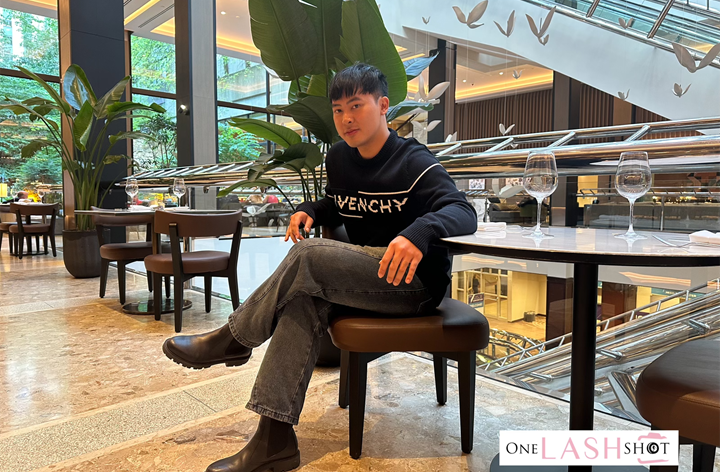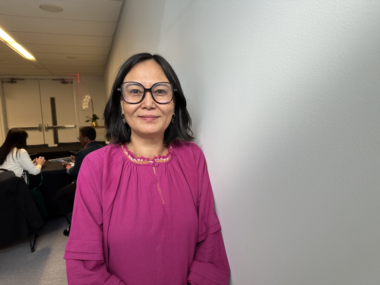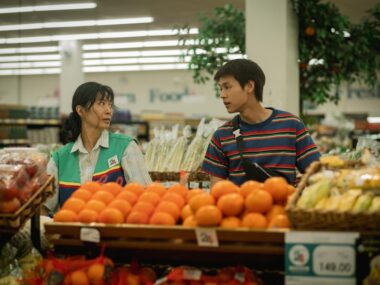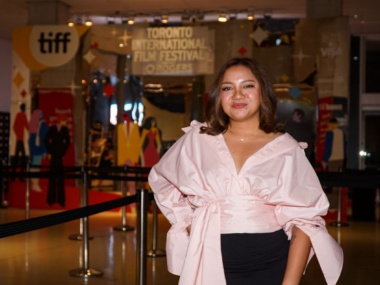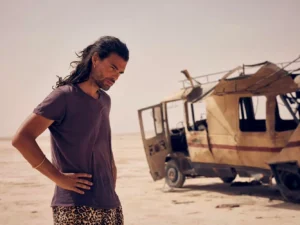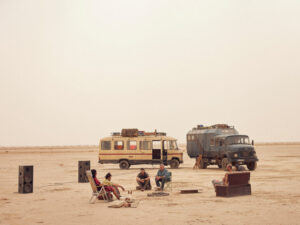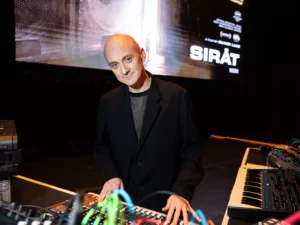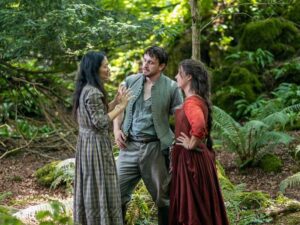The spectacular, dark melodrama by GDH, The Paradise of Thorns (Wiman Nam), made its North American premiere at the Toronto International Film Festival on September 9, marking the feature film debut of Boss Naruebet Kuno, known for his work on popular series such as My Ambulance, Side to Side and I Told Sunset About You.
Set in a durian orchard of a remote Thai village, this rural drama marks the first time for actors Jeff Satur and Engfa Waraha in leading roles, in an operatic tale of inequality, poverty, loss and cruelty.
One Lash Shot had the opportunity to speak with Director Boss Kuno, the director and screenwriter, about the behind-the-scenes of this project.

Why are you called ‘Boss’?
Thai people normally have nicknames. First my mom liked the name- ‘Narubet’. ‘Narubet’ means ‘king’. Since my first name meant ‘king’, my nickname had to be something similar. That’s how I became ‘Boss’.
How did you first become interested in movies? What inspired you to be a filmmaker?
Back in the 90s, video rental stores were very popular and it was my family’s business. My family opened rentals for video stores and I grew up in a place that had 1000s of movies and everything. During a Saturday or Sunday, I could choose whichever movie I wanted to watch and watch it. So that was a huge resource. What I like the most is old Chinese martial arts focused shows. So those kinds of series had 40 or 50 episodes. I enjoyed it a lot- I would watch one episode and then wait for another one and then another one…. So as a child, I thought it was a very fun experience and that’s how I bonded with all the movies and storytelling.
The Paradise of Thorns is your first feature film. Congratulations! Honestly, it’s hard to believe this is your debut- it’s fantastic! So, can you explain how you came to direct this film in the first place?
Even though it’s my first movie, I have worked on a lot of tv shows before like I Told Sunset About You, My Ambulance and Side by Side. I had that background, so doing this movie is like a new step for me. Before The Paradise of Thorns, my latest work was I Told Sunset About You. It is actually a story of two boys and a coming-of-age series. That’s when I started to think about those two boys’ future. And, it led me to think about same-sex marriage. What if they can get married- what’s the next step for them?
At that time, same-sex marriage became a really popular topic in Thailand also. So, I thought a lot about it and it was the first thing I wanted to talk about if I made my first movie. Coincidently, Thailand was discussing this issue a lot as well, so it was a mixture of both these situations. Also, I am LGBTQ+ myself and I really wanted to tell my story because with the atmosphere around me, I was really into this topic- it was karma, now or never- I had one shot. I have to do it right now or it will be the wrong time or I might not be into it to this extent anymore. So, that’s the beginning of everything.
You have directed several tv shows before. Noticeably, your show I Told Sunset About You and your 14-minute short Last Twilight in Phuket revolved on the LGBTQ+ relationships. In what way did your previous directing experience contribute to this project specifically?
When I worked on a lot TV shows that revolved around LGBTQ+, it changed me a lot. Before that I used to work on topics that people would like. When you start doing something, you tend to cater to the masses. This media has to be interesting to the viewers and everything. But I started to gradually work on what I was really interested in. So, for example, in the LGBTQ+ world- the society, the friends, the culture or even the lovers- I really wanted to talk about them one by one. It’s the topic I know best, so I started to put myself in the world step-by-step and it led to this movie. Because, I want to tell the story that I have experienced and tell the story in a way that can hit the heart, because that’s how I felt about it. So, when I started to do this movie, my intention was to tell the story I really know and feel strongly about.
Thailand made headlines for being the first country in Southeast Asia to pass the marriage bill for LGBTQ+ communities. Thailand is also world-renowned for its BL dramas, some of which you directed. In your opinion, what do you wish to convey to this amazing LGBTQ+ community around the world through your film?
In Thailand, girls’ love and boys’ love is very popular. There has been talk about its many aspects- love stories, cliches etc. But for The Paradise of Thorns, I wanted to talk about the social issues that are faced by the LGBTQ+ communities in society. I wanted to highlight the two topics- First, is going to be the story that the LGBTQ+ really experience. Another one is what will happen to them without the existence of legalized same-sex marriage.
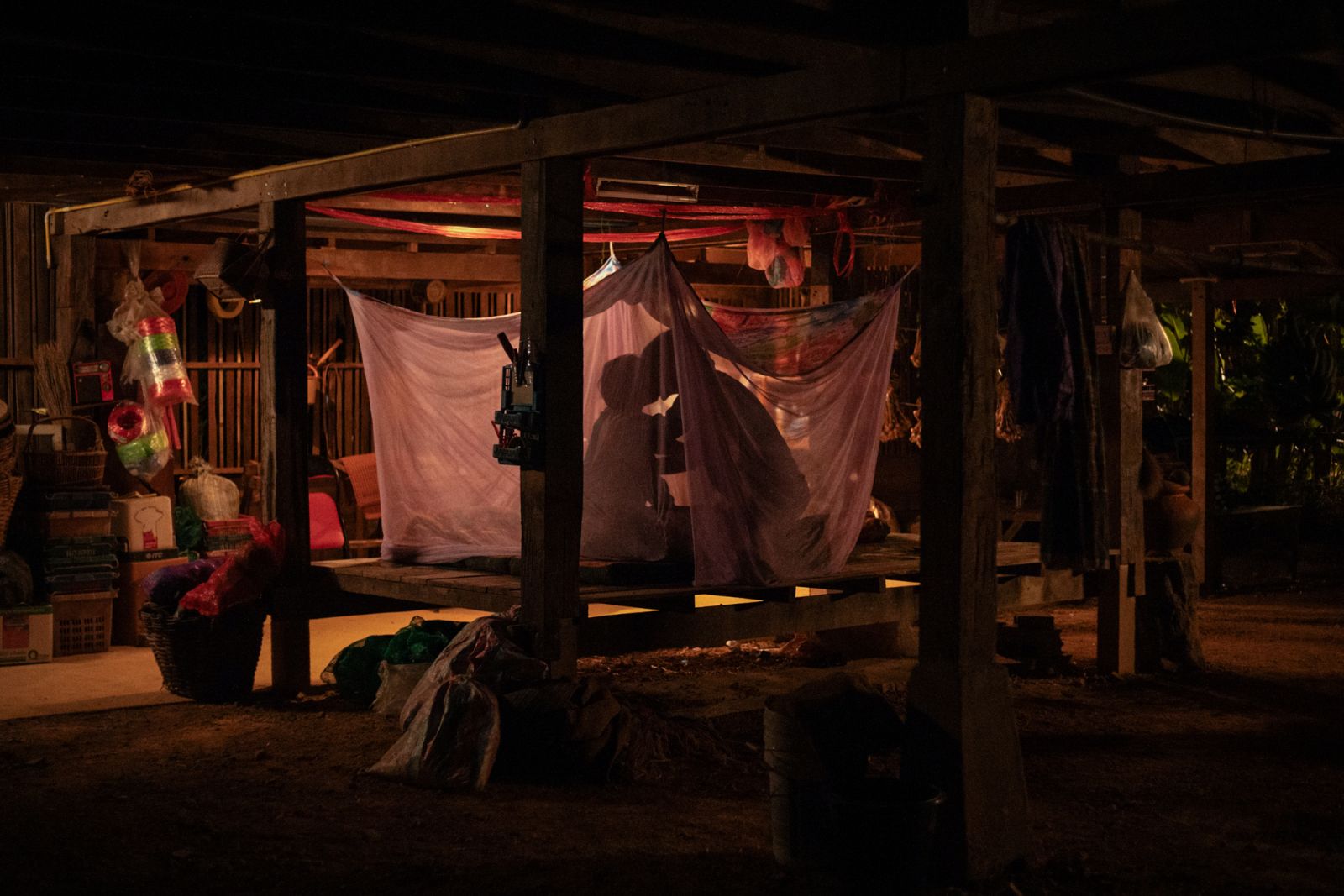
My intention was to re-iterate the story to open the world for other countries. For example, for a country that already has the same-sex marriage, they might not consider how the world without same-sex marriage is like, anymore. So, I wanted them to understand by projecting them real stories, the feelings that the characters’ experience, the loss that they really experience. And, for a country that doesn’t have the same-sex marriage law, I just want to tell them that this is the situation that you got to experience if you don’t have this law to protect the people.
What’s the overarching vision of the film? What inspired you, and what themes or emotions were you trying to convey through The Paradise of Thorns? Were you inspired by Parasite by any chance?
Besides the same-sex marriage, I wanted to talk about loss. When you lose something, it’s the start of everything. And a feeling of you losing something is already like a drama because there’s a lot of feelings going on inside of you— the sadness, the loss itself, everything. So, the idea is that when you lose something and it’s a same-sex marriage, it leads to the story that will be more than just sadness. Because, when you lose something, the first emotion is that you are sad. But after being sad, you struggle a lot and it could lead to a disaster ultimately. There are a lot of different stages of feelings that develop from losing something. And, this is a feeling of a thriller, the whole story is like a thriller in itself because when you lose something, in the end you can lose everything.
Also, the inequality that is portrayed in the story— it’s about fighting for something, fighting for yourself- nothing makes sense in your life, so all you can do is fight. When you fight against those circumstances, you become stronger, which leads to positive developments potentially.
So, when I was working on this story, I thought who would be most hurt while experiencing all these feelings? Rich people might not experience all of these— you can cry in your Mercedes Benz. But for the poor people, this is a real thing. When you lose something, it might mean that you actually lost everything. That’s why I wanted the poor person to be the main character to tell this intense story of people who don’t have food, people who don’t have a house, don’t have anything— but they still have something to lose. I think this is similar feeling that was portrayed in Bong Joon-ho’s movie because he also talked about poor, Asian people.
Anyway, The Paradise of Thorns base has come from the Thai culture that actually exists in the real world, so we actually wanted to pull out the cultural aspects in this movie- like the gender role, how you treat elders- it’s all part of the Thai culture. I think this intensity can only be seen in poor people, that’s why I chose to show that.
If I asked you to pick one— the inhumanity associated with greed, loss caused due to inequality and same-sex marriage as the theme of this movie, which one would you pick?
I think my quick answer would be loss because of the inequality. Inequality is the tag line for this movie, as it leads to greed and everything that takes place after that. Same-sex marriage happens, but it’s the inequality that leads to the loss in this case.
You were involved in writing the screenplay alongside Naron Cherdsoongnern and Karakede Norasethaporn. How did you go about creating this complicated storyline?
In my opinion, for the team to have an effective way of working, we had to understand each other, especially the other two writers had to understand me. We had to have a similar attitude of LGBTQ+, same-sex marriage and the necessity of equality, so that we could craft the script to be in the same way. We had to be good at working together, but also very understanding of the experiences faced by such communities. So, for this movie we researched a lot. I understood the LGBTQ+ a lot as I am one of them, I have worked with them and we know a lot of LGBTQ+ people in our life, but the other part of the movie, like the cruelty, the people who live on the countryside or how to grow durians— we had zero information on it.
We had to research a lot to understand how things worked and how the characters’ feelings developed in each of their own ways. So, for making the script most realistic and as complicated as possible- I mean we didn’t try to make it complicated, but it did end up having a lot of layers because we interviewed a lot of people and we found the good execution or interesting feelings by interviewing people who experienced some of these situations. So, we pulled out all of this information and created the script, which is why I would say the script is well-made. We worked very hard, researched and tried to put in all the details.
What was the casting process like? I believe it is Jeff Satur’s first feature film as well. What was it like to collaborate with him- both of you having stellar records on TV, but working for the first time on a movie?
In the casting process, we first got Engfa. Her background was that of a model and I saw her and thought that she had the potential to be in this role. I learnt that she had a pretty tough life before. So that’s why I thought she really fit into this character of ‘Mo’, I saw her potential and I called her in, told her I wanted to work with her and let her try out and see how it’s like. It was magical- she really can give her best to give more. So, when this process worked, we had to find a person who connected to the life of the characters and also because this movie is really hard and talks about a lot of feelings. But eyes cannot lie. Engfa has a pair of eyes that are really magical and that can speak volumes.
For the other characters as well, we used the same method. So, I cast people who had similar backgrounds as the characters did and had eyes that could not lie. We got the mother, ‘Saeng’- she also lost her son in real life. We got ‘Jingna’- he had some kind of pure heart genuine feeling.
The last person we got was Jeff. ‘Thongkam’ is the person who had to hold the whole movie. So, the person who acted as ‘Thongkam’ had to have the chemistry with each of the characters. It was hard to find one person who could connect with all people.
Also, his physical appearance had to be realistic- his muscle build, the way he walked and talked and everything, had to be like a farmer who worked in an orchard for 5 years. And, Jeff really could make that happen. He is also an artist; he has written a lot of music. His eyes are magical, he has artistic, dreamy eyes. By working with Jeff, it was mostly sharing— sharing the whole story between me and Jeff, because neither of us are familiar with the life of ‘Thongkam’, so we tried to understand the character the most and share to each other what we thought ‘Thongkam’ would do in each situation.
Jeff would write a diary about ‘Thongkam’ as ‘Thongkam’, every day. So, he could understand every detail. He would use the feelings and anything he imagined and come to talk with me about it. We would discuss it and it sometimes would end up in the movie. Jeff actually built another whole mood for ‘Thongkam’, because ultimately his character’s life is very different from his own life. His character lives in the countryside while Jeff lives in the main city. So, when he acted, he really put himself in the shoes of ‘Thongkam’. The diary helped him a lot. When we were about to start shooting, Jeff would bring his diary to the orchard, read all the details like- this is what a durian tree looks like, this is how a durian feels, this is how it tastes— he imagined every situation. That made it magical.
Did he really go bald for the movie?
No (laughs)… he still had to do other work, he is the presenter of all the products.
He sang the song in the closing sequence of the movie. How did he go about composing that soulful tune of ‘Rain Wedding’?
We shot the whole movie in Trat province of northern Thailand. So, the orchard and the house are in Trat province, which is pretty far from Bangkok. When we shot the whole team had to stay there.
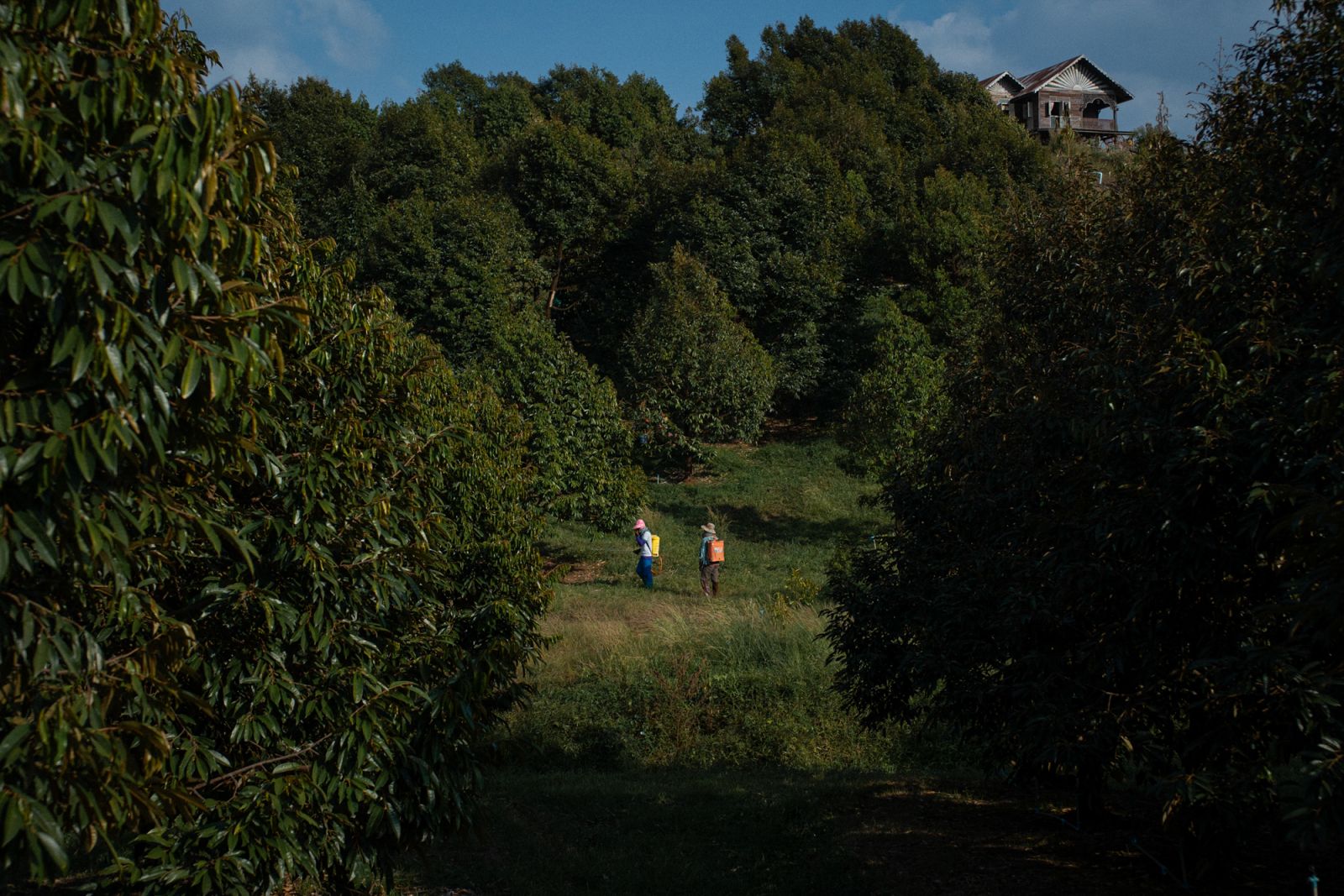
Jeff also had to stay there for a month or two. When you go there, there’s nothing there. You shoot for a few days, and then when there’s a break, there’s nothing to do. So, since you cannot do anything there, Jeff was there with his guitar and keyboard. So, he was there by himself in his room, with his instruments. He would act for 2-3 days and then get a day’s break.
Using all of the feelings he accumulated in those days enacting the scenes, he developed the song in his room during that one vacation day he got. He did this during the whole period of shooting. So, when the shooting ended, he had completed working on the song, so he brought this song to me and was like “These are all the feelings I was left with post-shooting and I poured my feelings and developed all of it into this song. And I want it to be the song of this movie”. So, I was like “Yeah, sure, of course”. Then he asked for another month or two to do the whole thing and come back with the whole song and he said that it was going to be the song of the movie.
He really felt his character and the story— he really felt the love of ‘Thongkam’ to ‘Jingna’ and he developed the song throughout the whole shooting process. He is very talented.
What was your favourite scene in the film and why does it hold special meaning to you?
When we work on a script, every scene has a meaning in itself. We worked on this script for a year. So, every inch of a scene had to be perfect. So basically, I liked all the scenes on the paper. So, for the actor to deliver magical acting, that’s when it makes the scene special. Because they can deliver more than what’s in the paper. So, my favourite scene is like that- if the actor can keep the magic, I like it. In college, I studied acting before. I never studied film; my major is acting.
The scene I like the most is when ‘Mo’ asks mom to sign the whole land deed to her. That scene is also in the trailer. Her eyes in that scene, makes it magical over a thousand times more than what’s in the script. A person who cannot understand what a character feels, cannot deliver eyes like that during the acting process. So that’s magical.
The scene is simple- it’s just one person asking another person to sign a paper for her. It isn’t fancy at all, there is no fighting or anything. But Engfa was able to deliver it by heart and act it out. And at the time, the whole crew was moved to tears.
What challenges did you face during the shooting process and how did you overcome it?
The hardest part would be the content. In Thai history, most of the movies that really make money and actually become successful are the ones that are heartfelt, the kind that give a warm feeling. Most of them would be romantic comedies that are happy-happy.
I would say, the content of my movie is really dark and there are a lot of social issues in it. As Vanridee (the producer of The Paradise of Thorns) said, most of the Thai people do not like talking about serious issues that much, but this content talks about serious issues. So that would have been the obstacle in my heart, because I wanted to make content that was real drama, not comedy or romance. I fought with myself a lot— Is it going to be successful? Is it going to make money? Would anyone come to watch it? This was something I faced throughout the time I was working on the movie. But in the end, I did not have the answer. I couldn’t get an answer until the movie was officially released. Because these are kind of questions with no answers. So, I trusted my instincts- I thought about the issues I care about, what I thought people will like and I combined it together. The result is this movie.
I believed that a movie that needs to be successful has to be made with heart. It should be heartfelt to be successful in the end. And turns out I am right, because this movie seems to have impacted the audience positively.
There was a monk ceremony that ‘Thongkam’ had in the film. Is that really a traditional ceremony that usually happens in Thailand for becoming a monk?
Karakede (the screenwriter of The Paradise of Thorns): Oh yeah. Thailand is a Buddhist country, right? So, for the boys you have to be a monk and then you can get married. It’s like a practice. You be a monk first and then you can get married. It’s a belief that if you become a monk, then your mom and your dad can go to heaven in their afterlife. It’s a common practice in Thailand.
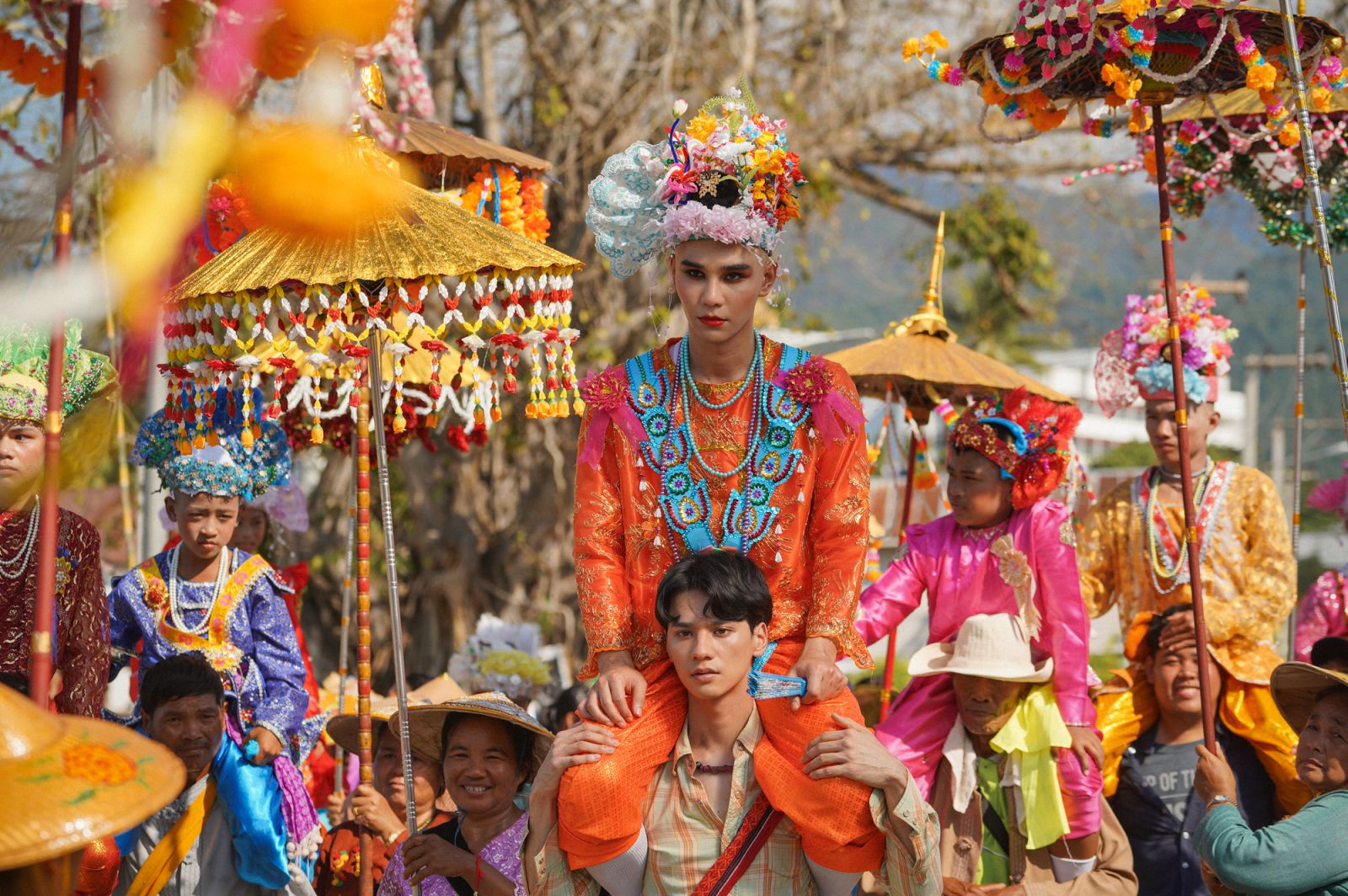
But in the movie, its special. Normally, when you become a monk, you just put on the orange robe. But in the movie, you have to dress beautifully first and that culture is specific to the province of Mae Hong Son in the northern part of Thailand, which is very close to Myanmar. It’s a very magical practice that happens there. Mae Hong Son shares a similar culture to Myanmar due to the proximity. To become a monk, in the movie, you have to be a prince first. Then once you become a prince, you can become a monk. That’s why in the movie ‘Thongkam’ is dressed as the Myanmar prince. He had to be carried by ‘Jingna’ because a prince cannot let his feet touch the ground. So, that’s how we got that scene.
The location for The Paradise of Thorns is very important to the story. According to you, what were the main factors adding to the narrative, while portraying the significance of a durian orchard in a remote Thai village?
The main story is about two guys who created a life together and one day one of them passes away and everything changes. The idea is that what kind of land are the two sides going to be fighting on. Like what land will ‘Saeng’, ‘Mo’ and ‘Thongkam’ be fighting over. If they fight over gold or other similar items, they can just steal it. But fruits are attached to the land, so they have to fight each other for that land, particularly. They cannot simply take anything from the land. So, that’s how the fighting happened in the whole orchard, the house and the rest of the area. Because all of it is attached to the land. It forces all the people to remain in the same place as well. I thought it was a good idea to make such a thriller on that premise.
The durian fruit is the “king of fruits” and is very expensive in Thailand. It is expensive like gold. Even ‘Thongkam’ means gold. Durian is like gold of the land. People fight over it. Durian is also very expensive is because it’s very hard to grow it. You have to grow it for 5 years until you can actually collect the fruits and sell it. You have to spend a lot of time, heart and effort to grow the durian, before you finally get something. We love that it kind of portrayed the love story between ‘Sek’ and ‘Thongkam’. They had to build their love from start, along with the durians, until one day when the durian flower bloomed, their love story blooms as well as they decide to get married. We wanted it to be a symbol of the love story.
As for why it was shot in the remote countryside, I wanted to talk about people who are poor, people who are affected by the laws the most. So, we showed a land in the middle of nowhere, and yet, people were fighting over that land. We show Mae Hong Son, because Mae Hong Son is where the income per capital is the lowest in Thailand. It is the poorest city in Thailand. The income per person is very low. So, in contrast, we wanted to grow the most expensive fruit on that land. It makes the story interesting and exciting.
What is the intended impact on the audience? What do you hope viewers to take away from The Paradise of Thorns?
The main thing I want this movie to be is good entertainment. People who watch it should enjoy it and have fun watching it. The message I want people to understand is the matter of inequality in every aspect, including LGBTQ+. It’s not just about love anymore, it’s about rights and benefits. It’s about people being equal. Even in the movie, the partner cannot sign even if their better half is in a critical condition. It’s a very serious situation that needs to be addressed. I hope that people will finally gather all that they see into the back of their mind and realize the importance of having a law in place for such issues.
So, what does your near future look like post the undoubted success of The Paradise of Thorns? Are there any upcoming projects or themes you’d like to tackle?
In the future, I want to make another movie for sure. I am still thinking about the topic. I want it to be international- like the topic highlighted in The Paradise of Thorns can be understood by people all around the world. Before I can think about a topic I am really into or want to work on, I might go back to working on TV series because it’s what I am used to doing. Right now, I want to talk about Gen-Z kids, youngsters nowadays…. because The Paradise of Thorns was all dark and gloomy, so I want to work on something flashy, fashionable next!
In Thailand, kids actually talk through Spotify or Instagram. If you date someone, you have to have a Spotify playlist with them. In school, for instance, you know that Person A and Person B are dating because they have exchanged those apps together. I am really interested in those kinds of stories now- something cute, fashionable and less intense than I Told Sunset About You. I like to do everything by myself. So, my next project is going to be my own project, it won’t be part of any studio.
[Author’s note: This interview was originally in Thai. Thank you to Director Boss Kuno and team for this amazing movie. Additionally, thank you to Karakede for helping translate from Thai to English.]

